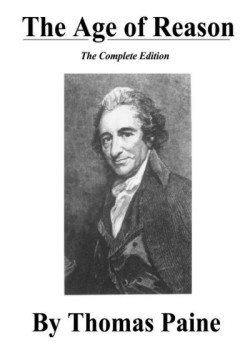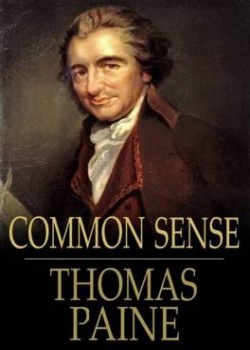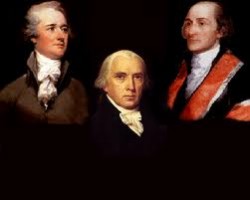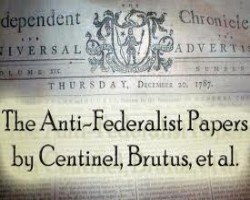CONSTITUTION OF THE UNITED STATES
CHAPTER XXXII
PROHIBITIONS ON THE UNITED STATES
§ 1335. Having finished this review of the powers of congress, the order of the subject next conducts us to the prohibitions and imitations upon these powers, which are contained in the ninth section of the first article. Some of these have already been under discussion, and therefore will be pretermitted.
§ 1336. The first clause is as follows:
"The migration, or importation of such persons, as any of the states now existing shall think proper to admit, shall not be prohibited by the congress, prior to the year one thousand eight hundred and eight; but a tax, or duty, may be imposed on such importation, not exceeding ten dollars for each person."
§ 1337. The corresponding clause of the first draft of the constitution was in these words: "No tax, or duty, shall be laid, on the migration, or importation of such persons, as the several states shall think proper to admit; nor shall such migration, or importation be prohibited." 'In this form it is obvious, that the migration and importation of slaves, which was the sole object of the clause, was in effect perpetuated, so long, as any state should choose to allow the traffic. The subject was afterwards referred to a committee, who reported the clause substantially in its present shape; except that the limitation was the year one thousand eight hundred, instead of one thousand eight hundred and eight. The latter amendment was substituted by the vote of seven states against four; and as thus amended, the clause was adopted by the like vote of the same states.
§ 1338. It is to the honour of America, that she should have set the first example of interdicting and abolishing the slave-trade, in modern times. It is well known, that it constituted a grievance, of which some of the colonies complained before the revolution, that the introduction of slaves was encouraged by the crown, and that prohibitory laws were negatived. It was doubtless to have been wished, that the power of prohibiting the importation of slaves had been allowed to be put into immediate operation, and had not been postponed for twenty years. But it is not difficult to account, either for this restriction, or for the manner, in which it is expressed. It ought to be considered, as a great point gained in favour of humanity, that a period of twenty years might for ever terminate, within the United States, a traffic, which has so long, and so loudly upbraided the barbarism of modern policy. Even within this period, it might receive a very considerable discouragement, by curtailing the traffic between foreign countries; and it might even be totally abolished by the concurrence of a few states. "Happy," it was then added by the Federalist, "would it be for the unfortunate Africans, if an equal prospect lay before them of being redeemed from the oppressions of their European brethren." Let it be remembered, that at this period this horrible traffic was carried on with the encouragement and support of every civilized nation of Europe; and by none with more eagerness and enterprize, than by the parent country. America stood forth alone, uncheered and unaided, in stamping ignominy upon this traffic on the very face of her constitution of government, although there were strong temptations of interest to draw her aside from the performance of this great moral duty.
§ 1339. Yet attempts were made to pervert this clause into an objection against the constitution, by representing it on one side, as a criminal toleration of an illicit practice; and on another, as calculated to prevent voluntary and beneficial emigrations to America. Nothing, perhaps, can better exemplify the spirit and manner, in which the opposition to the constitution was conducted, than this fact. It was notorious, that the postponement of an immediate abolition was indispensable to secure the adoption of the constitution. It was a necessary sacrifice to the prejudices and interests of a portion of the Southern states. The glory of the achievement is scarcely lessened by its having been gradual, and by steps silent, but irresistible.
§ 1340. Congress lost no time in interdicting the traffic, as far as their power extended, by a prohibition of American citizens carrying it on between foreign countries. And as soon, as the stipulated period of twenty years had expired, congress, by a prospective legislation to meet the exigency, abolished the whole traffic in every direction to citizens and residents. Mild and moderate laws were, however, found insufficient for the purpose of putting an end to the practice; and at length congress found it necessary to declare the slave-trade to be a piracy, and to punish it with death. Thus it has been elevated in the catalogue of crimes to this 'bad eminence' of guilt; and has now annexed to it the infamy, as well as the retributive justice, which belongs to an offence equally against the laws of God and man, the dictates of humanity, and the solemn precepts of religion. Other civilized nations are now alive to this great duty; and by the noble exertions of the British government, there is now every reason to believe, that the African slave-trade will soon become extinct; and thus another triumph of virtue would be obtained over brutal violence and unfeeling cruelty.
§ 1341. This clause of the constitution, respecting the importation of slaves, is manifestly an exception from the power of regulating commerce. Migration seems appropriately to apply to voluntary arrivals, as importation does to involuntary arrivals; and so far, as an exception from a power proves its existence, this proves, that the power to regulate commerce applies equally to the regulation of vessels employed in transporting men, who pass from place to place voluntarily, as to those, who pass involuntarily.
§ 1342. The next clause is:
"The privilege of the writ of habeas corpus shall not be suspended, unless when, in cases of rebellion or invasion, the public safety may require it."
§ 1343. In order to understand the meaning of the terms here used, it will be necessary to have recourse to the common law; for in no other way can we arrive at the true definition of the writ of habeas corpus. At the common law there are various writs, called writs of habeas corpus. But the particular one here spoken of is that great and celebrated writ, used in all cases of illegal confinement, known by the name of the writ of habeas corpus ad subjiciendum, directed to the person detaining another, and commanding him to produce the body. of the prisoner, with the day and cause of his caption and detention, ad faxiendum, subjiciendum, et recipiendum, to do, submit to, and receive, whatsoever the judge or court, awarding such writ, shall consider in that behalf. It is, therefore, justly esteemed the great bulwark of personal liberty; since it is the appropriate remedy to ascertain, whether any person is rightfully in confinement or not, and the cause of his confinement; and if no sufficient ground of detention appears, the party is entitled to his immediate discharge. This writ is most beneficially construed; and is applied to every case of illegal restraint, whatever it may be; for every restraint upon a man's liberty is, in the eye of the law, an imprisonment, wherever may be the place, or whatever may be the manner, in which the restraint is effected.
§ 1344. Mr. Justice Blackstone has remarked with great force, that "to bereave a man of life, or by violence to confiscate his estate without accusation or trial, would be so gross and notorious an act of despotism as must at once convey the alarm of tyranny throughout the whole kingdom. But confinement of the person by secretly hurrying him to gaol, where his sufferings are unknown or forgotten, is a less public, a less striking, and therefore a more dangerous engine of arbitrary force." While the justice of the remark. must be felt by all, let it be remembered, that the right to pass bills of attainder in the British parliament still enables that body to exercise the summary and awful power of taking a man's life, and confiscating his estate, without accusation or trial. The learned commentator, however, has slid over this subject with surprising delicacy.
§ 1345. In England this is a high prerogative writ, issuing out of the Court of King's Bench, not only in term time, but in vacation, and running into all parts of the king's dominions; for it is said, that the king is entitled, at all times, to have an account, why the liberty of any of his subjects is restrained. It is grantable, however, as a matter of right, ex merito justitiae, upon the application of the subject. In England, however, the benefit of it was often eluded prior to the reign of Charles the Second; and especially during the reign. of Charles the First. These pitiful evasions gave rise to the famous Habeas Corpus Act of 31 Car. 2, c. 2, which has been frequently considered, as another magna charta in that kingdom; and has reduced the general method of proceedings on these writs to the true standard of law and liberty. That statute has been, in substance, incorporated into the jurisprudence of every state in the Union; and the right to it has been secured in most, if not in all, of the state constitutions by a provision, similar to that existing in the constitution of the United States. It is not without reason, therefore, that the common law was deemed by our ancestors a part of the law of the land, brought with them upon their emigration, so far, as it was suited to their circumstances; since it affords the amplest protection for their rights and personal liberty. Congress have vested in the courts of the United States full authority to issue this great writ, in cases falling properly within the jurisdiction of the national government.
§ 1346. It is obvious, that cases of a peculiar emergency may arise, which may justify, nay even require, the temporary suspension of any right to the writ. But as it has frequently happened in foreign countries, and even in England, that the writ has, upon various pretexts and occasions, been suspended, whereby persons apprehended upon suspicion have suffered a long imprisonment, sometimes from design, and sometimes, because they were forgotten, the right to suspend it is expressly confined to cases of rebellion or invasion, where the public safety may require it. A very just and wholesome restraint, which cuts down at a blow a fruitful means of oppression, capable of being abused in bad times to the worst of purposes. Hitherto no suspension of the writ has ever been authorized by congress since the establishment of the constitution. It would seem, as the power is given to congress to suspend the Writ of habeas corpus in cases of rebellion or invasion, that the right to judge, whether exigency had arisen, must exclusively belong to that body.
§ 1347. The next clause is:
"No bill of attainder or ex post facto law shall be passed."
§ 1348. Bills of attainder, as they are technically called, are such special acts of the legislature, as inflict capital punishments upon persons supposed to be guilty of high offences, such as treason and felony, without any conviction in the ordinary course of judicial proceedings. If an act inflicts a milder degree of punishment than death, it is called a bill of pains and penalties. But in the sense of the constitution, it seems, that bills of attainder include bills of pains and penalties; for the Supreme Court have said, "A bill of attainder may affect the life of an individual, or may confiscate his property, or both." In such cases, the legislature assumes judicial magistracy, pronouncing upon the guilt of the party without any of the common forms and guards of trial, and satisfying itself with proofs, when such proofs are within its reach, whether they are conformable to the rules of evidence, or not. In short, in all such cases, the legislature exercises the highest power of sovereignty, and what may be properly deemed an irresponsible despotic discretion, being governed solely by what it deems political necessity or expediency, and too often under the influence of unreasonable fears, or unfounded suspicions. Such acts have been often resorted to in foreign governments, as a common engine of state; and even in England they have been pushed to the most extravagant extent in bad times, reaching, as well to the absent and the dead, as to the living. Sir Edward Coke has mentioned it to be among the transcendent powers of parliament, that an act may be passed to attaint a man, after he is dead. And the reigning monarch, who was slain at Bosworth, is said to have been attainted by an act of parliament a few months after his death, notwithstanding the absurdity of deeming him at once in possession of the throne and a traitor. The punishment has often been inflicted without calling upon the party accused to answer, or without even the formality of proof; and sometimes, because the law, in its ordinary course of proceedings, would acquit the offender. The injustice and iniquity of such acts, in general, constitute an irresistible argument against the existence of the power. In a free government it would be intolerable; and in the hands of a reigning faction, it might be, and probably would be, abused to the ruin and death of the most virtuous citizens. Bills of this sort have been most usually passed in England in times of rebellion, or of gross subserviency to the crown, or of violent political excitements; periods, in which all nations are most liable (as well the free, as the enslaved) to forget their, duties, and to trample upon the rights and liberties of others.
§ 1349. Of the same class axe ex post facto laws, that is to say, (in a literal sense,) laws passed after the act done. The terms, ex post facto laws, in a comprehensive sense, embrace all retrospective laws, or laws governing, or controlling past transactions, whether they are of a civil, or a criminal nature. And there have not been wanting learned minds, that have contended with no. small force of authority and reasoning, that such ought to be the interpretation of the terms in the constitution of the United States. As an original question, the argument would be entitled to grave consideration; but the current of opinion and authority has been so generally one way, as to the meaning of this phrase in the state constitutions, as well as in that of the United States, ever since their adoption, that it is difficult to feel, that it is now an open question. The general interpretation has been, and is, that the phrase applies to acts of a criminal nature only; and, that the prohibition reaches every law, whereby an act is declared a crime, and made punishable as such, when it was not a crime, when done; or whereby the act, if a crime, is aggravated in enormity, or punishment; or whereby different, or less evidence, is required to convict an offender, than was required, when the act was committed. The Supreme Court have given the following definition. "An ex post facto law is one, which renders an act punishable in a manner, in which it was not punishable, when it was committed." Such a law may inflict penalties on the person, or may inflict pecuniary penalties, which swell the public treasury. Laws, however, which mitigate the character, or punishment of a crime already committed, may not fall within the prohibition, for they are in favour of the citizen.
§ 1350. The next clause (passing by such, as have been already considered) is:
"No money shall be drawn from the treasury but in consequence of appropriations made by law. And a regular statement and account of the receipts and expenditures of all public money shall be published from time to time."
§ 1351. This clause was not in the original draft of the constitution; but the first part was subsequently introduced, upon a report of a committee; and the latter part was added at the very close of the convention.
§ 1352. The object is apparent upon the slightest examination. It is to secure regularity, punctuality, and fidelity, in the disbursements of the public money, As all the taxes raised from the people, as well as the revenues arising froth other sources, are to be applied to the discharge of the expenses, and debts, and other engagements of the government, it is highly proper, that congress should possess the power to decide, how and when any money should be applied for these purposes. If it were otherwise, the executive would possess an unbounded power over the public purse or the nation; and might apply all its monied resources at his pleasure. The power to control, and direct the appropriations, constitutes a most useful and salutary check upon profusion and extravagance, as well as upon corrupt influence and public peculation. In arbitrary governments the prince levies what money he pleases from his subjects, disposes of it, as he thinks proper, and is beyond responsibility or reproof. It is wise to interpose, in a republic, every restraint, by which the public treasure, the common fund of all, should be applied, with unshrinking honesty to such objects, as legitimately belong to the common defence, and the general welfare. Congress is made the guardian of this treasure; and to make their responsibility complete and perfect, a regular account of the receipts and expenditures is required to be published, that the people may know, what money is expended, for what purposes, and by what authority.
§ 1353. A learned commentator has, however, thought, that the provision, though generally excellent, is defective in not having enabled the creditors of the government, and other. persons having vested claims against it, to recover, and to be paid the amount judicially ascertained to be due to them out of the public treasury, without any appropriation. Perhaps it is a defect. And yet it is by no means certain, that evils of an opposite nature might not arise, if the debts, judicially ascertained to be due to, an individual by a regular judgment, were to be paid, of course, out of the public treasury. It might give an opportunity for collusion and corruption in the management of suits between the claimant, and the officers of the government, entrusted with the performance of this duty. Undoubtedly, when a judgment has been fairly obtained, by which a debt against the government is clearly made out, it becomes the duty of congress to provide for its payment; and, generally, though certainly with a tardiness, which has become, in some sort, a national reproach, this duty is discharged by congress in a spirit of just liberality. But still, the known fact, that the subject must pass in review before congress, induces a caution and integrity in making and substantiating claims, which would in a great measure be done away, if the claim were subject to no restraint, and no revision.
§ 1354. The next clause is:
"No title of nobility shall be granted by the United States; and no person holding any office of profit or trust under them shall, without the consent of the congress, accept of any present, emolument, office, or title of any kind whatever, from any king, prince, or foreign state".
§ 1355. This clause seems scarcely to require even a passing notice. As a perfect equality is the basis of all our institutions, state and national, the prohibition against the creation of any titles of nobility seems proper, if not indispensable, to keep perpetually alive a just sense of this important truth. Distinctions between citizens, in regard to rank, would soon lay the foundation of odious claims and privileges, and silently subvert the spirit of independence and personal dignity, which are so often proclaimed to be the best security of a republican government.
§ 1356. The other clause, as to the acceptance of any emoluments, title, or office, from foreign governments, is founded in a just jealousy of foreign influence of every sort. Whether, in a practical sense, it can produce much effect, has been thought doubtful. A patriot will not be likely to be seduced from his duties to his country by the acceptance of any title, or present, from a foreign power. An intriguing, or corrupt agent, will not be restrained from guilty machinations in the service of a foreign state by such constitutional restrictions. Still, however, the provision is highly important, as it puts it out of the power of any officer of the government to wear borrowed honours, which shall enhance his supposed importance abroad by a titular dignity at home. It is singular, that there should not have been for the same object, a general prohibition against any citizen whatever, whether in private or public life, accepting any foreign title of nobility. An amendment for this purpose has been recommended by congress; but, as yet, it has not received the ratification of the constitutional number of states to make it obligatory, probably from a growing sense, that it is wholly unnecessary.







The most important project on this website is "THE WORKS."
This is the place where you can read the words of the founding fathers and those who had a VERY BIG part in the founding of this country.
Not only do we have the Federalist and the Anti-Federalist Papers, but we also have other Constitutional Commentaries that were written shortly after the Constitution was ratified.